Dates: June 5 – 12, 1888
Location: Minnehaha Falls, Minneapolis, Hennepin Co., MN
Find it today: Map
The camp: Minnehaha Falls is located in Minnehaha Regional Park. The camp meeting was stated as being “along the banks of the historic Minnehaha, in full view of, and but a few steps from, the celebrated waterfall.”
The depot: Those traveling to camp meeting via the railroad arrived at Minnehaha Depot. The Minnehaha station, famous for its intricate “gingerbread” canopy, was one of three stops on the first railroad line built out of Minneapolis. The look of the depot led railroad men at the time to call it the “Princess.” The depot has been restored by the Minnesota Transportation Museum and, in partnership with the Minnesota Historical Society, provides an opportunity for you to visit it today! Read about the Minnehaha Depot.
The baptisms: Baptisms were conducted in Minnehaha Creek.
Minnesota News: It was at the Minnehaha camp meeting that it was determined to open a conference school in Minneapolis as soon as practicable. The school was opened that fall in the Minneapolis First English SDA Church and this was the forerunner of Maplewood Academy.
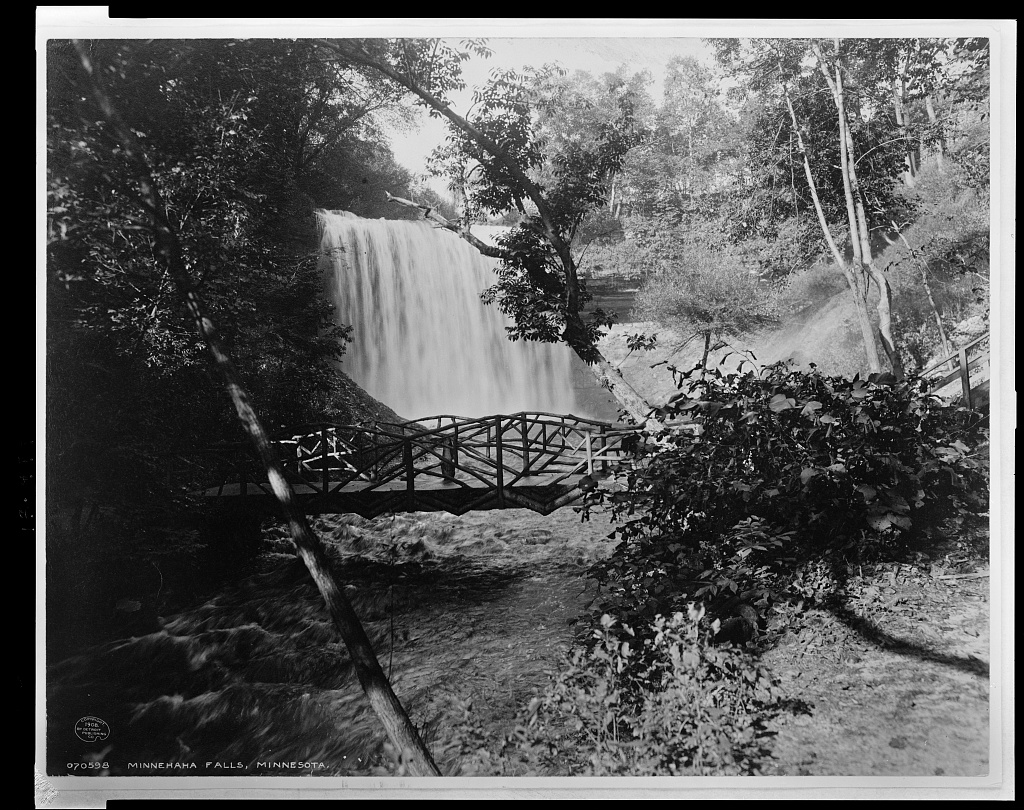
MINNESOTA CAMP-MEETING. – This meeting will be held at Minnehaha Falls, between St. Paul and Minneapolis, June 5-12. We have secured beautiful ground, and the natural features of the place are all that could be desired. The railroads will be liberal in granting reduced rates and other favors, of which we will give full particulars as soon as complete arrangements have been made.
A workers’ meeting will be held the week preceding the camp-meeting, beginning Monday, May 20. We expect some will camp on the ground as early as the 25th, and we invite as many as possibly can of our ministers, canvassers, Bible-workers, and all laborers in the cause, and our brethren and sisters to be present at this time, as well as at the regular meeting.
We will appoint Sabbath, May 26, as a day of fasting and prayer, to be observed all over the Conference by those who would feel it a privilege to join in this with us. We would especially ask those who have faith in God, and who feel the burden of the work, and can see some necessity for appointing such a fast-day, to engage in seeking the blessing of God upon our camp-meeting, and upon the cause throughout the Conference. We need this more than anything else, and we know God does not give his Spirit unless we earnestly ask for and desire it. It seems when we look at our needy condition, that we cannot let the time go by without taking some advance steps, and securing for ourselves, and our Conference an unusual outpouring of the Spirit of God.
We expect good help from the General Conference. The privileges of such a gathering come to us only once in a year; and while men who are overburdened with the cares of the work come to labor and help us, we should make every reasonable effort to be present. We shall hope for a large attendance this year from every part of the State. We especially invite those who expect to engage in the canvassing work to be present at both the meetings, as particular attention will be given to this branch, and instruction will be given to those just beginning. Come, dear brethren and sisters, and let us all do our best to make our camp-meeting this year a great blessing to the work in this State.
MINN. Conf. Com. – Review and Herald, May 8, 1888
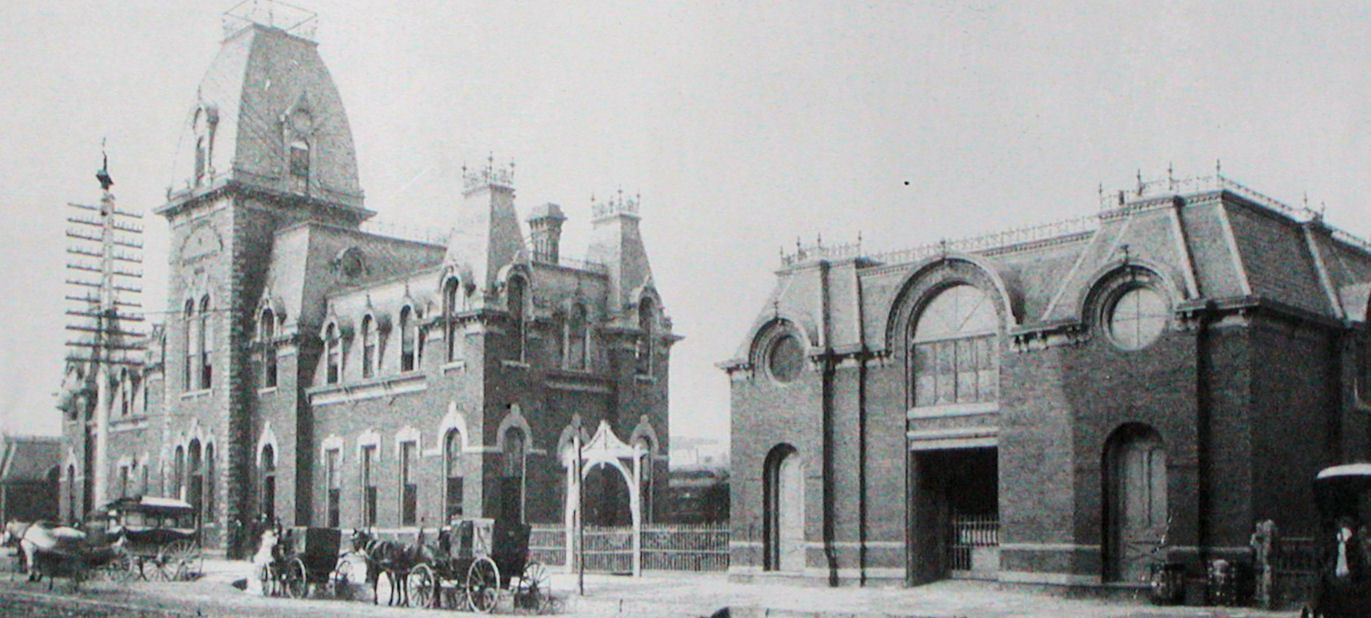
RAILROAD RATES TO MINNESOTA CAMP-MEETING. – Those coming to camp-meeting by rail can avail themselves of the benefit of reduced rates on the roads named, by observing the following particulars:
1. You should always secure a certificate of the agent where you buy your ticket, If you come over two or more roads, get a certificate for every ticket you buy, You will pay full fare coming, and the certificate or certificates you obtain of the agents must be signed by Bro. D. P. Curtis, which will entitle you to a return ticket at one third fare. This certificate must be presented at the office where you buy your return ticket. Those who do not comply with these conditions will fail to secure reduced rates.
2. All those coming over the Chicago, Burlington & Northern, the Chicago, St. Paul, Minneapolis & Omaha, the Wisconsin Central, the Minnesota & Northwestern, the St. Paul & Duluth, and all lines of the Chicago, Milwaukee & St. Paul, except the Hastings & Dakota line, should buy tickets to St Paul, and there buy round trip tickets to Minnehaha, and have baggage rechecked. Never buy tickets from your home station to Minnehaha. Those corning over the Hastings & Dakota line of the Milwaukee & St. Paul should buy tickets to Minneapolis, and there buy round trip tickets to Minnehaha, and have baggage rechecked.
Those coming over the Minneapolis & St. Louis Road will buy tickets to Minneapolis, and there transfer to the Chicago, Milwaukee & St. Paul depot, and buy round-trip tickets to Minnehaha. Those living on the line of the Chicago & Northwestern Road should buy tickets via Kasota, Waseca, or Dodge Center, securing certificates to those points; thence over the other lines, connecting at the above places.
Those on the Southern Minnesota Division of the Chicago, Milwaukee & St. Paul, can buy continuous tickets via Austin, and on the Wells & Mankato branch, to Mankato; thence over the Omaha, and notice that all certificates will be honored only at St. Paul or Minneapolis, and not at Minnehaha; so you must buy round-trip tickets from those cities to the ground, to secure the reduction. Camp-meeting agents will be found in the depots at the cities to assist in making transfers, etc. So far the Northern Pacific, the Minneapolis Pacific, St. Paul, Minneapolis & Manitoba, refuse to grant any favors, except the regular reduction on round-trip tickets.
ALLEN MOON – Review and Herald, May 22, 1888
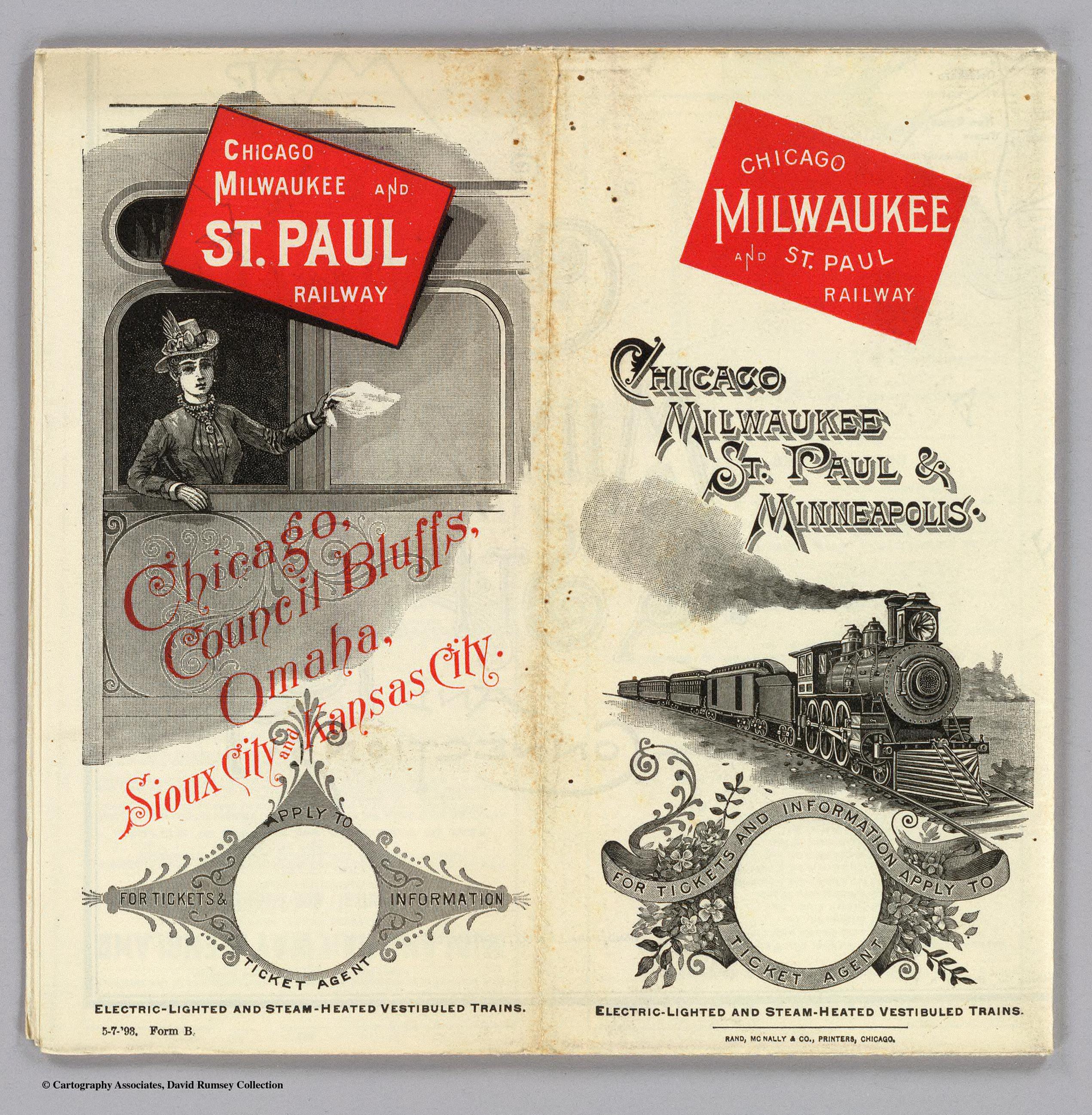
MAIL FOR THE MINNEAPOLIS CAMP-MEETING. – ALL sending mail to any person attending the camp-meeting at Minnehaha Falls, should send it to Minneapolis, and put the word “camp-ground” on the envelope, besides the address. There is no post-office at Minnehaha, and we have made arrangements at the post-office in Minneapolis to have all mail addressed in the above manner, delivered at the ground.
A. D. OLSEN – Review and Herald, May 29, 1888
ADDITIONAL INSTRUCTIONS CONCERNING THE MINNESOTA CAMP-MEETING. – We have failed to secure reduced rates over the Northern Pacific, the St. Paul, Minneapolis & Manitoba, and the Minneapolis & Pacific railroads, owing to a combination of these three roads. Those coming over either of these lines should buy round-trip tickets, and thus secure the best rates possible.
Those coming over the Northern Pacific, or the St. Paul, Minneapolis & Manitoba Road, should buy tickets to St. Paul, and there baggage can be rechecked to Minnehaha. Also buy round-trip tickets from St. Paul to Minnehaha. Those coming over the Minneapolis & Pacific Road, should buy roundtrip tickets to Minneapolis, and transfer to the Chicago, Milwaukee & St. Paul Road, and buy roundtrip tickets to Minnehaha.
The brethren of North Dakota can secure reduced rates by coming over the Chicago, Milwaukee & St. Paul Road from Fargo. We would advise our brethren in all cases where, without too great inconvenience, they can reach a road that will grant a reduction, to do so, and thus secure the benefit of reduced rates.
ALLEN MOON – Review and Herald, May 29, 1888
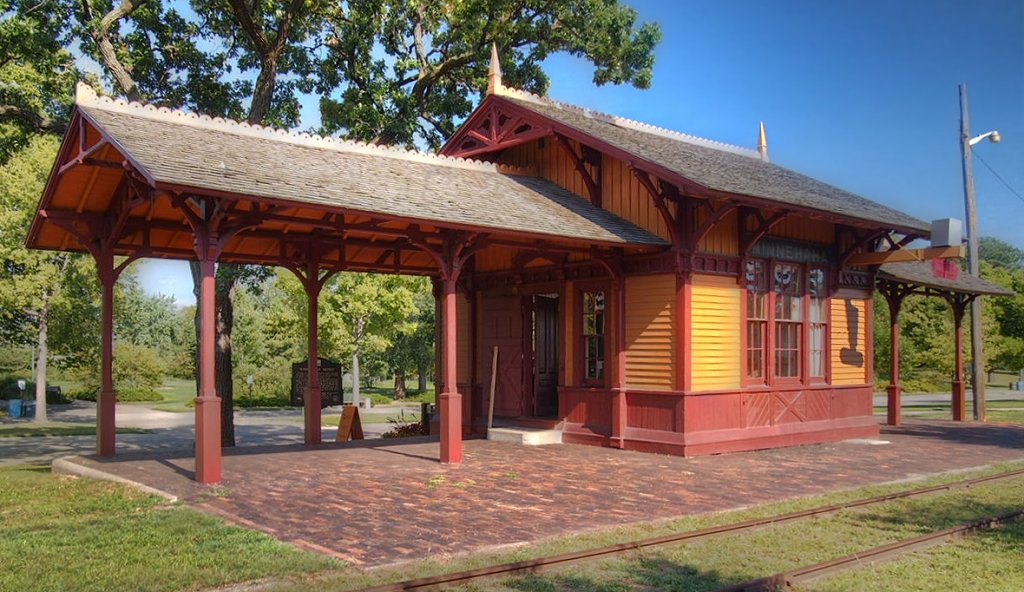
A Motor Engine Does a “Turn” at Minnehaha Falls.
The motor train consisting of an engine and two cars, which left the Minnehaha station shortly after 8 p. m. yesterday had a rather rough experience before it had proceeded far on its journey into the wicked city. Just beyond the bridge that spans Minnehaha creek, a few rods this side of the motor station, is a switch, which was open when the train reached it. The consequence was that the engine and first car left the track, the coupling between them broke, and the “motor” rolled down the embankment, toward the Milwaukee tracks. As it rolled over it seemed to balance a moment in a completely inverted position, and at this time the engineer, Ed Jordan, jumped: as he did so the ‘”motor” rolled again and passed completely over him. He was picked up, taken to town on the “Milwaukee” train, and carried to Dr. Ames’ office for medical attendance. Later he was removed to his home, 3110 Blaisdell avenue. No bones were broken and he received no serious cuts, but was badly bruised and shaken up. No one else was hurt.
Passengers of both the Milwaukee and motor line trains say that it was understood that the two trains were racing, as they started out from the stations at the same time. A gentleman who is stopping at the Adventist camp near the scene of the accident says he has seen boys playing with and opening and shutting the switch several times during his stay there.
The Minneapolis Tribune, June 4, 1888
IN HISTORIC WATERS.
Adventist Baptism at Minnehaha – Camp Closes.
For the last time the sleeping camp of the Adventists was last night lulled by the falling waters of Minnehaha. The camp, on the north slope close by the historic cataract, will be struck this morning. Already many of the tents are vacated and the services closed early last evening. The most interesting feature of the meeting was the baptismal service about 6 o’clock last evening. Twenty proselytes, including, perhaps, one or two who had been backsliders, preceded by a group of elders, descended the precipitous slope of the ravine and followed the romantic path down the beautiful glen to the poal at the old mill site. Half a hundred spectators, including the workmen at the Soldiers’ home, were there and took in the impressive ceremony. The water was quite pleasant, and the party entered, about waist deep, while the biblical chapter, detailing the baptism of the Christ, was read. Water was then scooped up in the palm of the officiating clergyman and poured on the head of the novitiates, while the form of the sect was carried on. The pool was a beautiful basin of water, and formed nature’s own baptistery.
The services yesterday began at 4 in the morning, just as the full light of day was obtained. Elder Butter [sic] officiating. The canvasser’s meeting and a doctrinal discussion consumed the morning hours. Elder Butter [sic] addressed the conference at noon, and urged the use of individual mission boxes, by which $10,000 was raised last year. F. S. Mead, Mankato; Allen Moon, St. Paul; Henry Grant, Minneapolis; and Lewis Johnson, Sleepy Eye, were elected members of the executive committee. Among the resolutions adopted was one favoring the establishment of an Adventist school in this state.
St. Paul Daily Globe, June 12, 1888
THE MINNESOTA CAMP-MEETING. The camp was located between the “twin cities” of Minneapolis and St. Paul, on the Chicago, Milwaukee & St. Paul R. R., and at the terminus of the Motor line of Minneapolis. The grounds were all that could be desired. Nature’s grove, the carpet of green along the banks of the historic Minnehaha, in full view of, and but a few steps from, the celebrated waterfall, with its musical roar, and its waters breaking into white spray from the time it begins its fall till it reaches the angry elements some sixty feet below – all lend a charm to the surroundings, and render the spot an appropriate place for the worship of the God of nature who alone can make that which is truly grand, attractive, and good.
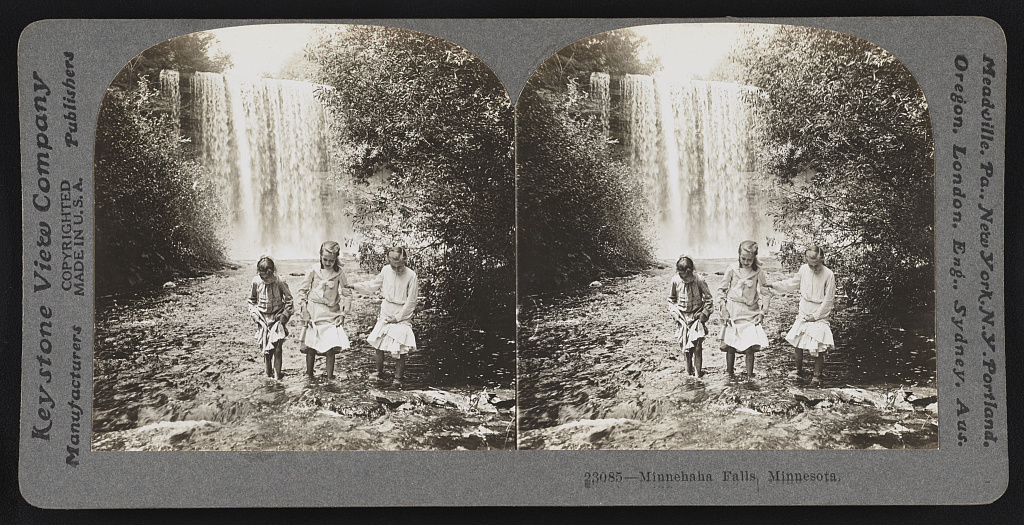
The workers’ meeting, held the week previous had resulted not only in the erection of the tented city in an orderly and tasteful manner, but also in a good degree of spiritual advancement by those who had been most active. The workers had become imbued with the spirit of labor, and were at work for those who needed help, the results of their labor being seen before the meetings closed. Ample provisions were made to render all comfortable, and special pains were taken to make the stay of the laborers from abroad as home-like as possible.
Those who leave their homes to attend the meetings, may endure the change of a few days in tents, with hard beds and chairs, living on cold lunches and poorly prepared and tasteless food. But for those who attend there meetings week after week, from early spring till late in the fall, and are expected to carry most of the burden during each meeting, working late every night and rising early every morning – it ought not to be surprising that tent-life without the common home comforts afforded them, should become monotonous and wearing. These servants of God are the last to make any complaints as to their own treatment, the quality and variety of the food which they receive, or the provisions made for them in other respects; but it is a question of expediency, of profit and loss, and should be considered by those in charge of these gatherings. How long do they want these men to continue in the work? What quality of labor do they want? And what kind of labor do they desire their next neighbor to receive? At the close of the camp meeting season, when the round of service is closed up, do we want the marks of disease, physical weakness, and weariness to be stamped upon those who have sacrificed so much for the benefit of those they came to help? It is not good policy to muzzle the ox that treadeth out the corn.
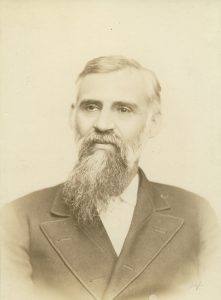
Courtesy of the
Ellen G. White Estate, Inc.
Eld. Butler and Prof. W. W. Prescott were early on the ground, and commenced labor with the camp-meeting proper. Eld. Farnsworth was detained in Iowa on account of the sickness of his wife, and did not arrive till Thursday. These brethren labored hard in imparting important and much-needed instruction, and their efforts were much appreciated by all who were on the ground. The subject of spiritual gifts was faithfully set before the people; and opportunity being given for questions, many were asked, and important and instructive answers were given. The harmony and consistency of the position which we as a people have held for more than forty years on this subject, is made more and more apparent as the answers to the many attacks upon the visions are given. It is about time that those who have been blinded by the spirit which causes these attacks, should have their eyes opened.
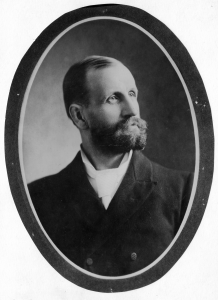
A deep interest was awakened in regard to the subject of education. Plans are being laid, and an action was taken by the Conference, to establish a State school. They already have rooms in the basement story of the church in the city of Minneapolis, where they can accommodate quite a large number of students, and at an early date they expect to have the school in operation, according to the recommendations of the General Conference.
About 150 Scandinavians were camped on the ground, and regular meetings were conducted by Elds. Lewis and H. R. Johnson. The influences which have been brought to bear upon those of the Swedish tongue, by the apostasy and efforts of Elds. Lee and Rosquist, have greatly retarded the growth, in the ranks of this people, so far as numbers and devotion to the cause of present truth are concerned. This has given the enemy occasion to suggest ideas in the minds of some, that the work in that tongue was slighted by those having charge of it. When love for the truth, and loyalty in its behalf tends to a consistent and strict adherence to its principles, there will be no occasion for feelings of distrust, or a lack of union with those who stand at the head of the cause of God on the earth. There will be fellowship for, and no lack of union with, those of other languages. If those who profess to believe the truth will receive it all, get the love of it down deep in their hearts, and do it cheerfully, God will bless them and unite them to their brethren. But if they choose to complain and criticize, find desire to be free from the restraint which the truth for this time imposes, is better for the cause, and for all who are connected with it, that they should depart, and affiliate with those who are more congenial to their tastes and feelings. It is now expected that Eld. J. G. Matteson will conduct a training-school in Minneapolis, beginning about the first of September, for the purpose of preparing workers to labor in the Scandinavian language. There is an increasing demand for Bible workers and canvassers to labor among this people.
Eld. H. Shultz was present, and held regular services in a separate tent with those of the German language, a goodly number of whom were also camped on the ground. Dr. J. H. Kellogg was present one day, and improved the time by giving instruction to the people on the subject of health and hygiene in his usual earnest way. The business meetings were harmonious and passed off pleasantly. The old officers of the Conference were reinstated, and the Executive Committee was increased to five, adding F. L Mead and Allen Moon to the number. The number of ministers remains the same; while the list of licentiates was decreased. Some of those who had held licenses were advised by the Conference to enter the canvassing work. There is a greater demand now for other laborers than for preachers, and no branch of the cause is better adapted for the development of laborers than canvassing. Faithful work is now called for, and that which brings no fruit in return for what is received, cannot be reckoned as faithful labor. The money placed in the treasury is sacred, and cannot be justly paid to those who have not given, an equivalent in honest toil.
The Conference is already behind in its finances, and was not able to pay its workers in full, yet the officers and membership start out for the new year with bright hopes and good courage, that another year will see the debts all paid and a surplus in the treasury. An honest tithe paid by all its membership will insure this happy result.
The revival meetings on the Sabbath were solemn, and the preaching was searching. About 200 came forward for prayers. Of these thirty-four were baptized on Monday afternoon by Elds. Johnson and Schram, in Minnehaha Creek. The social meetings were all good. All were ready and anxious to take part, and quite a number were on their feet at the same time, waiting their turn to speak. The Holy Spirit was present, and we enjoyed a good degree of the blessing of God. The attendance of those not of our faith was good, and on Sunday afternoon and evening the congregation gave marked attention to the arguments on the Sabbath question as they were presented by Eld. Farnsworth and Prof. Prcscott.
M. KILGORE – Review and Herald, June 19, 1888
CAMP-MEETINGS IN MINNESOTA AND WISCONSIN.
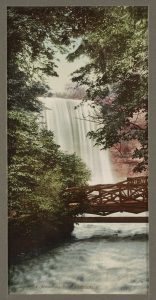
It was our privilege, in company with Brn. Prescott, Farnsworth, and Kilgore, to attend the campmeetings in these States. We have never seen a more beautiful location for a camp-ground than the one at Minnehaha Falls, Minn. A beautiful grove, with nice sod and a carpet of green grass, and in plain sight and hearing of one of the prettiest waterfalls in the world, was certainly all that could be desired. The camp was as nicely arranged as any I ever saw, and all the outward circumstances were favorable. There was a good attendance of the brethren and sisters of the Conference, and a warmhearted interest was manifested in the progress of the meeting, and a desire shown to obtain all the benefit possible.
The people seemed united, and well pleased with those who had been selected for officers; and there was no dissatisfaction or division apparent. The cause has made rapid growth for years past in Minnesota, and we see no reason why this growth may not be constantly accelerated in the future. Some debts have been incurred in establishing a depository, and churches in important localities, and the tract society has been quite heavily in debt to the offices of publication, in consequence of this expenditure of means; but with a good, hearty support, we think the officers of the Conference will be able, in a comparatively brief period, to pay off all these debts, and to go forward with success in the work. We have attended no meeting this year which seems to give a better outlook, or promise greater prosperity, than this one, for the Minnesota Conference.
… Our camp-meetings this spring have been seasons of encouragement, and, we trust, of profit. While there is still much chance for improvement, we have many cheering features, which go to show that the work is onward, and the message is increasing in volume and power.
I. B. (George Ide Butler) – Review and Herald, June 26, 1888
A CONFERENCE SCHOOL IN MINNESOTA. – AT a meeting of the General Conference Committee, held last April, it was deemed advisable that one or more Conference schools should be opened this year in such Conferences as seemed to be ready for such a move, At its annual meeting, held in connection with the camp-meeting at Minnehaha Falls, last June, the Minnesota Conference considered the matter, and requested the Conference Committee to arrange for opening such a school at Minneapolis, as soon as practicable. The President of the Conference, Eld. A. D. Olson, and the writer have been in correspondence since that time, and have endeavored to follow out the recommendations of the General Conference Committee in the matter of the establishment of new schools among us. Plans are now so far perfected that the following announcements can be made …
W. W. Prescott, Educational Secretary
(see full article Review and Herald, September 25, 1888)
Editor’s Note: This was the school that was established in the Minneapolis First English Church (site of the 1888 General Conference) in the fall of 1888 and was the forerunner of Maplewood Academy.